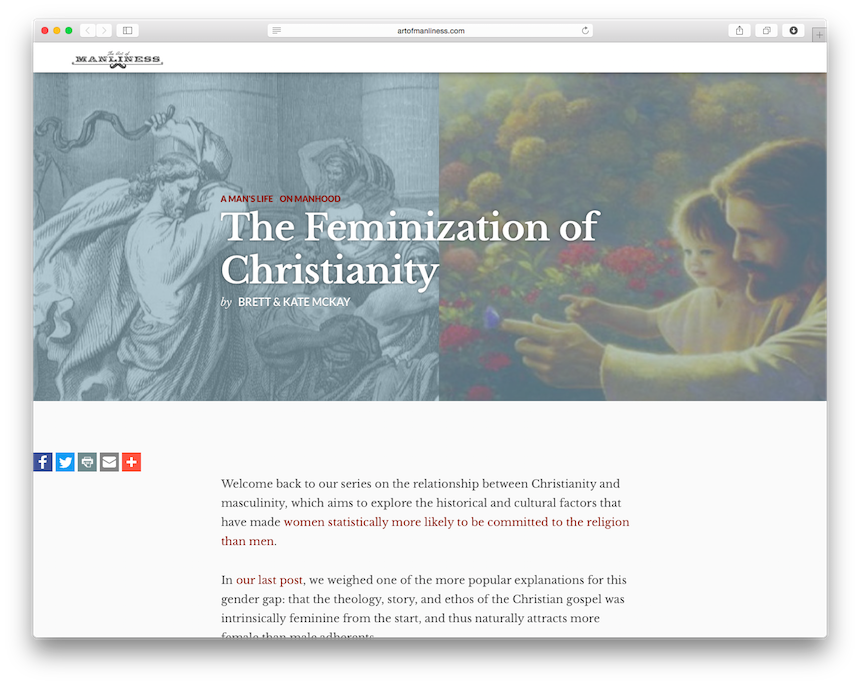TED Talk: Karen Gaffney
 Since I quit Netflix, I’ve been binge-watching TED talks instead:
Since I quit Netflix, I’ve been binge-watching TED talks instead:
"We are travellers…not yet in our native land" – St. Augustine
 Since I quit Netflix, I’ve been binge-watching TED talks instead:
Since I quit Netflix, I’ve been binge-watching TED talks instead:

As many of you know, I recently moved back from Seattle to my old stomping ground of sunny San Diego. Unfortunately, I didn’t manage to get back in time for the Catholic Answers Summer Series where the speakers from the local apologetics apostolate give talks at different parishes around the Diocese. Fortunately, they’re available online!
Tim Staples: Behold your mother, Defending your faith
Jimmy Akin: Understanding the Book of Revelation
Karlo Broussard: Defending truth in a relativastic culture, God still matters
Patrick Coffin: Apologetics for chickens
Christopher Check: The Galileo Affair
Hey everyone! The Camino is going really well and I am now a little over half way to Santiago. My feet are a little tired, but nothing worse than that!
Where I’m currently staying at the moment has a computer so I wanted to briefly respond to a message I received from a friend who was looking for a few articles he knew I had written but couldn’t find. If you’re looking for something on this blog, you can use the search dialogue in the right corner of the website:

Not only that, you can also use the menu items along the header. Here there are a series of menu items which will take you to pages where I have attempted to highlight the more important articles on this site related to the subjects of Catholicism, Apologetics, Church History, Sacred Scripture and the always popular subject of Catholic Dating:

I’ll have computer access again in a couple of weeks once I’ve finished the Camino. Thank you for your prayers!


When you hear people speaking about the Bible, and especially the Old Testament, you will often hear the terms “Israelite”, “Hebrew” and “Jew” used interchangeably. However, strictly speaking, these terms are not identical.
An Israelite is simply anyone who is a descendant of the Patriarch Jacob. In Genesis 32:28, after wrestling a mysterious man, Jacob is given a new name, “Israel”, which literally means “He who strives with God”.
If you recall, Jacob/Israel had twelve sons. These would later form the heads of the twelve tribes of Israel. Well, eleven of these sons took great umbrage at their brother Joseph, so they sold him into slavery (those of you with siblings will understand this). Years later, Joseph rose to power in Egypt and, after being reconciled with his family, brought them all to Egypt.
The family of Israel flourished in Egypt for some time until a new Pharaoh rose to power who forced them all into slavery. It is at this time that Moses is called by God to rescue his people and lead them out of Egypt. It is during the period of the Exodus that the term Hebrew is used to refer to the population.
Once the people return to Israel, they enjoy a period of prosperity. However, eventually there is a split in the Kingdom between the northern and southern Kingdom. The Southern Kingdom was known as “Judah” and the inhabitants of that area known as Jews. Both the northern and southern kingdoms are conquered and people exiled. After the exile, the term “Jew” is used to refer to any of the Israelites who were left.
I hope that this explanation of terms and recap of Salvation History is helpful!
Below is a follow-up to the article from Art Of Manliness which I shared yesterday. This articles attempts to identify the source of what it regards as the “feminization” of Christianity:

Below is a link to an article recently published on Art Of Manliness which I think is worth serious consideration. It addresses the question: why does Christianity appear to attract and retain more females than males?
 Recently my friend Joseph Heschmeyer from Shameless Popery was on the radio programme at Catholic Answers. He had previously been on the show once before, talking about Where we got the Bible.
Recently my friend Joseph Heschmeyer from Shameless Popery was on the radio programme at Catholic Answers. He had previously been on the show once before, talking about Where we got the Bible.
This time he was on the show speaking about The Eucharist in the Early Church. The episode came to the attention of my favourite (and I do mean that!) anti-Catholic apologist, Dr. James White. Bravo Joe 😀